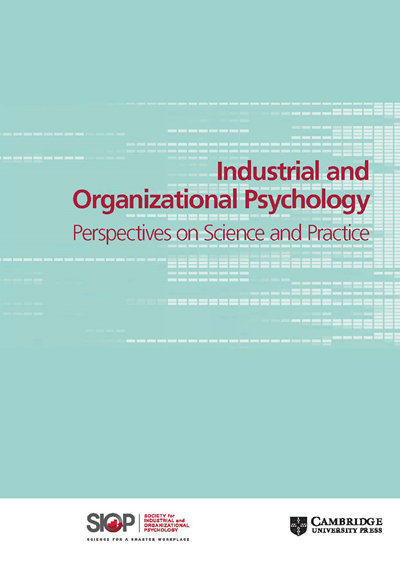改善条件还是有条件的改善?I-O伦理的现代规范和模式
IF 4.3
3区 心理学
Q1 PSYCHOLOGY, APPLIED
Industrial and Organizational Psychology-Perspectives on Science and Practice
Pub Date : 2023-05-09
DOI:10.1017/iop.2023.15
引用次数: 0
摘要
鉴于三类现代困境与技术和数据管理、健康和可及性以及正义、公平、多样性和包容性等当代问题的重叠,在重新构想和致力于I-O中更积极主动的准则方面,它们立即显现出来:评估的道德使用(例如,选择中的人工智能);研究和数据分析的道德行为;以及组织公平、包容、健康和公平的道德要求,特别是考虑到最近的世界事件(例如新冠肺炎大流行、社会正义运动、通货膨胀和经济挑战)。然后,算法受到数据中包含的质量(和偏差)的约束,在这些数据上对算法进行训练和测试。[…]随着监管格局的不断变化,利用道德准则制定评估变得更加重要。[…]相关的是,在组织中进行研究的I-O心理学家可能没有监管监督(例如,机构审查委员会治理、同行审查程序、对预注册和开放科学实践的期望)来指导他们的研究;如果存在并适用,监管监督可能仍然与组织研究不匹配,通常不适合某些类型、学科和背景,或者只关注研究过程的特定元素或阶段,而忽视其他元素或阶段(例如,Bell&Wray-Bliss,2009;Buchanan&Bryman,2009;Greenwood,2016)。[…]随着疫情后员工重返办公室,I-O心理学家可能也会发现自己陷入道德困境。[…]在不确定的环境中,积极主动的行为更有可能也更重要,尤其是那些本文章由计算机程序翻译,如有差异,请以英文原文为准。
Improving conditions or conditional improvements? A modern code, and mode, of I-O ethics
Three categories of modern dilemmas are immediately apparent in relation to reimagining and committing to a more proactive code in I-O, given their overlap with contemporary issues in technology and data management, health and accessibility, and justice, equity, diversity, and inclusion: ethical use of assessments (e.g., AI in selection);ethical conduct of research and data analysis;and ethical imperatives for fairness, inclusiveness, wellness, and equity in organizations, particularly in light of recent world events (e.g., the COVID-19 pandemic, social justice movements, inflation and economic challenges). Algorithms are then bound by the quality (and bias) incorporated into the data upon which they are trained and tested. [...]with the regulatory landscape in flux, it becomes even more important to utilize an ethical code to develop assessments. [...]relatedly, I-O psychologists who conduct research in organizations may not have regulatory oversight (e.g., institutional review board governance, peer review processes, expectations for pre-registration and open science practices) to guide their studies;if present and applicable, regulatory oversight may still be mismatched with organizational research, often ill fitted to certain types, disciplines, and contexts, or only focused on particular elements or stages of the research process while neglecting others (e.g., Bell & Wray-Bliss, 2009;Buchanan & Bryman, 2009;Greenwood, 2016). [...]I-O psychologists may also find themselves in ethical dilemmas as workers return to the office post pandemic. [...]proactive behavior is more likely and important within uncertain contexts, particularly those
求助全文
通过发布文献求助,成功后即可免费获取论文全文。
去求助
来源期刊

Industrial and Organizational Psychology-Perspectives on Science and Practice
PSYCHOLOGY, APPLIED-
CiteScore
7.70
自引率
10.10%
发文量
85
期刊介绍:
Industrial and Organizational Psychology-Perspectives on Science and Practice is a peer-reviewed academic journal published on behalf of the Society for Industrial and Organizational Psychology. The journal focuses on interactive exchanges on topics of importance to the science and practice of the field. It features articles that present new ideas or different takes on existing ideas, stimulating dialogue about important issues in the field. Additionally, the journal is indexed and abstracted in Clarivate Analytics SSCI, Clarivate Analytics Web of Science, European Reference Index for the Humanities and Social Sciences (ERIH PLUS), ProQuest, PsycINFO, and Scopus.
 求助内容:
求助内容: 应助结果提醒方式:
应助结果提醒方式:


